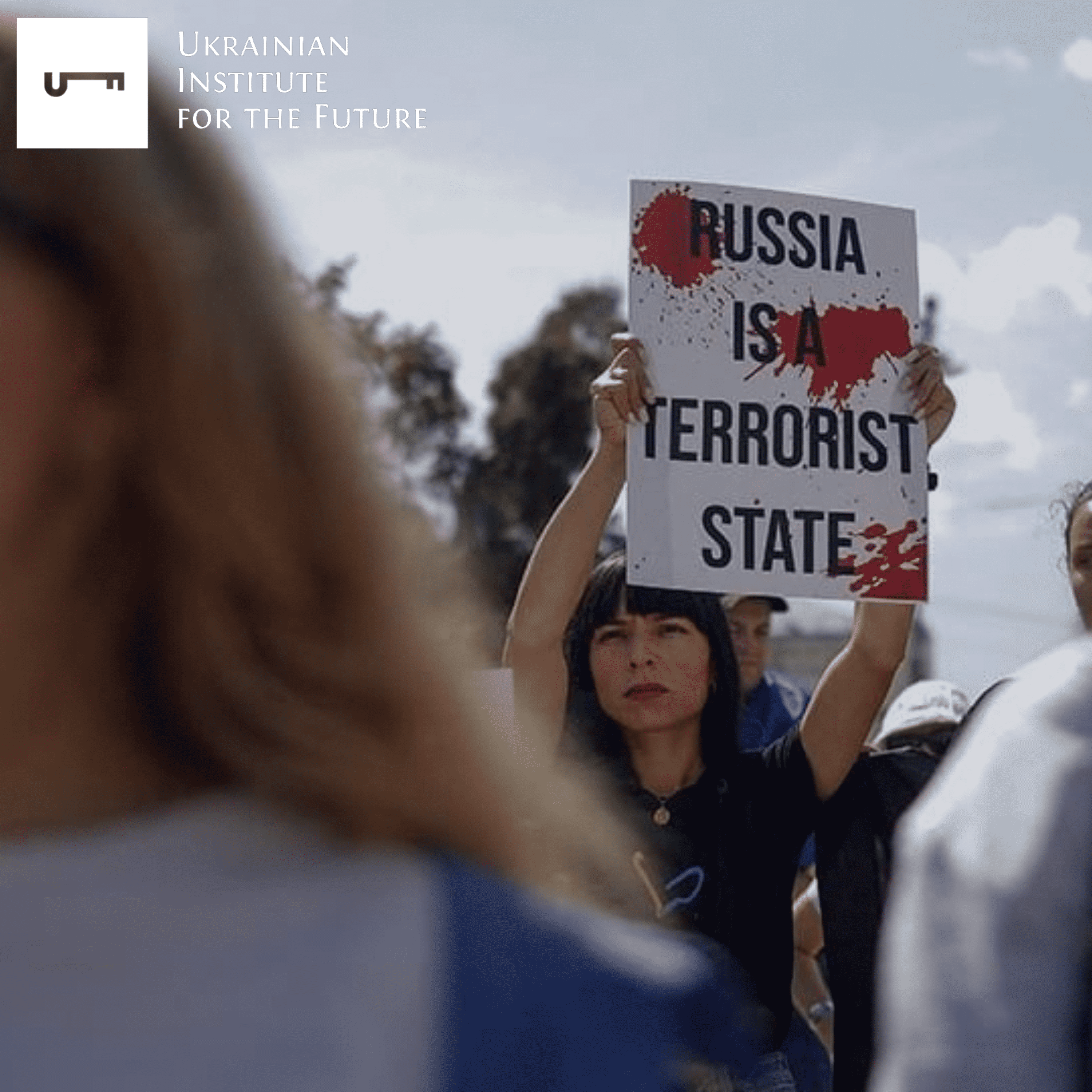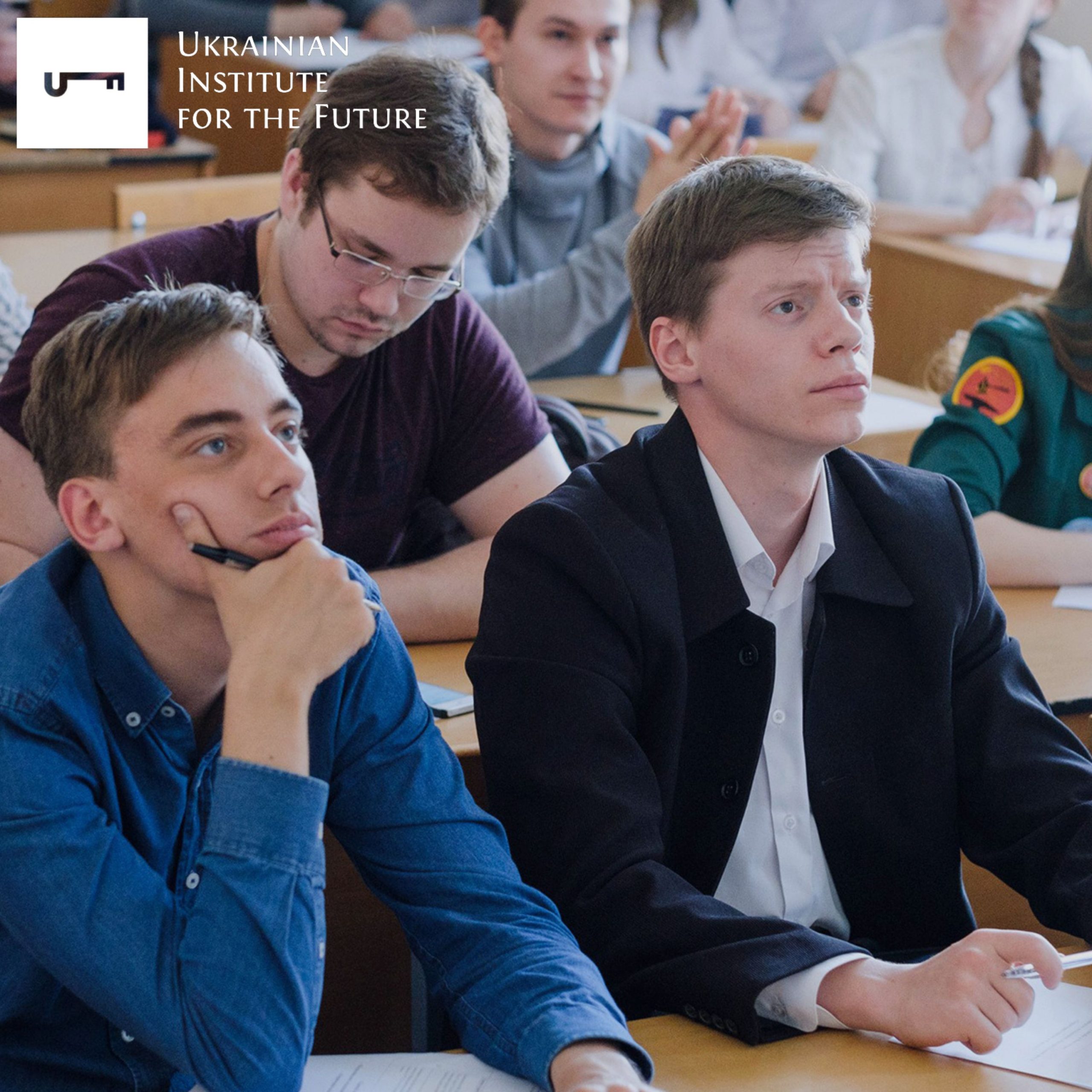Even a year ago, it was impossible to imagine how some unknown Russians purposefully direct missiles at Ukrainian residential buildings, while other unknown Russians choke with happiness on social networks if they managed to damage something badly or kill someone. Of course, a year before that, everyone got used to it, but the question that everyone asked himself on February 24 remained relevant up to this day: why are the Russians doing all this?
When looking for an answer to the question of why the Russians continue to engage in terrorism, despite the fact that they do not get the expected results, it is better to immediately give up the hope of finding the answer in a rational scope. First, it is risky: by rationalizing transgression, one can justify any inhuman crime. Second, there is no answer there. Terrorism, in principle, is an ineffective tool, because it does not allow you to achieve any result that could not be achieved without it.
It is more likely to find a reason in the discourse of hatred (A. Glucksman) “with the help of fear and trembling, turn all mankind into a community of the living dead, apathetic and paralyzed by the obvious vulnerability that belongs to them internally”, in sadism (E. Fromm) – “turn infirmity into the illusion of omnipotence”, in resentment (S. Žižek) or the Aztec “war of flowers” by J. Bataille. That is, you cannot come to the idea of killing random civilians if you do not like it in itself, no logical chain leads to such a conclusion. Even as a show of strength, it looks like blackmail
pitiful: who can see the killing of unarmed people from a long distance as a display of power or strength?
The only thing that can be conventionally called a rational benefit that the Putin regime could get from the killings and destruction is the joy of Russians, which turns into an increase in the ratings of the government. This raises the question: perhaps all the messages of the Russian regime should be considered as messages addressed primarily to Russians themselves? After all, energy terrorism affects the Russian society more than the Ukrainian one, and the Russian nuclear blackmail does not cause as much pride and fear in anyone as in Russians. However, why does the Russian government have such a complicated way of communicating with its own people, if it is easier to communicate in a proven way, through television?
And the choice of a bad tool for waging war, and the bad propaganda support of terrorism, and the fact that the Russians cannot stop, regardless of the fact that their actions do them more harm than good, as if deliberately screams that there is no purpose, and no content or purpose should be sought. It remains to assume that terrorist attacks must be fundamentally meaningless, that they are factual messages in which violence has replaced words, from which the following conclusions can be drawn: firstly, Russians need to convince themselves and others that they have not disappeared, secondly, that they are no longer capable of symbolization. That means there are no resources for understanding and formulation of questions about who they are, where they are going and why they should be together, that is, the crisis of identification has not been overcome. Regardless of the masking of terrorism as rational blackmail, Ukrainians understand everything correctly, and respond by destroying monuments and abolishing Russian culture, that is, they are hitting the most painful thing, narcissism.
Recently, there have been more discussions and comments about why it is not necessary to break up Russia, as if there is some kind of strong state that needs to be tried to make it collapse, but is this true?
Perhaps energy terrorism performs the same function as this entire war – to hide the main secret of Russia – that it should not be destroyed. The Russian Federation no longer exists, it can be saved or allowed to disappear, at least as we know it. Hatred of Ukrainians, the desire to destroy everyone who stands between the Russians and “greatness”, says that so many internal irreconcilable contradictions have accumulated in Russian society, which there was no other way to resolve than to create a “common enemy”, and then divert this energy outside during the war. Like the aging Aztec leader, who sent the strongest and most aggressive young men to the “war of flowers” in order to delay the solar apocalypse at the cost of the victims of captives, the Russian dictator is delaying not the moment of the collapse of the Russian Federation, but the moment when everyone will know about it. When those around are tired of pretending that the zombie, which smells like decay, will understand that is not just a country, but also the “greatest superpower”. Now the “living dead” is nourished by the blood, death and tears of Ukrainians, and whom will the “best people” hate if the war ends, the “greatness” no longer exists, and the economy has significantly deteriorated?
Some Russians understand themselves that without a war with Ukraine, a civil war will begin, that they have been saying more and more recently about.
It is interesting that the Russians, who approve the energy terrorism, cling with all their might to the “brotherly people” and to the fact that Ukrainians are Russians. It turns out that Russia attacked the “Russians”, and the Russian-speaking regions were and are suffering the most from the shelling. Perhaps the Kremlin government at some level always understood that the ultimate goal of what they were doing was suicide, and energy terrorism, and the war itself is, as A. Speer put it, “the swan song of Nazism”?
J. Deleuze and F. Guattari considered the Nazi state to be suicidal, and M. Foucault determined that the goal of German Nazism was to expose their own race to an absolute and all-encompassing threat of death.
As you know, between March 18 and April 7, 1945, Hitler was engaged in issuing orders to destroy the infrastructure of Germany, and the “suicide epidemic” was spreading among the Germans. From February to May 1945, several thousand Germans committed suicide, and the epidemic ended with the suicide of Hitler.
You can find many more proofs of the suicidal nature of the Putin regime: the manner of fighting with numbers, not with skill; statements about a nuclear paradise, numerous assurances by propagandists that life is greatly overestimated, old faces of the first persons everywhere, murder with a sledgehammer on camera, the palingenetic cult of “Pobedobesie”, etc. Therefore, whoever undertakes to save the Russian Federation must be ready for superhuman efforts, because it will not be protection from the attacks of evil Ukrainians, but at least resuscitation from the coma, which the war has already tried to do, instead becoming an admission of weakness and a little request for the last mercy.
By the way, Speer did not carry out Hitler’s last orders, but will such a Speer be found among Putin’s elite? It is more likely that the Russian executor will not care about people or architecture, but he will count the cost of future budget contracts for restoration. High-precision weapons will be gone for a long time, so they will shoot with whatever is left.
Therefore, not only the residents of Belgorod, Voronezh, but also Moscow should think about water and food supplies, buy power banks, batteries and generators, find the nearest open bomb shelter and get ready for the final act of collective suicide.



